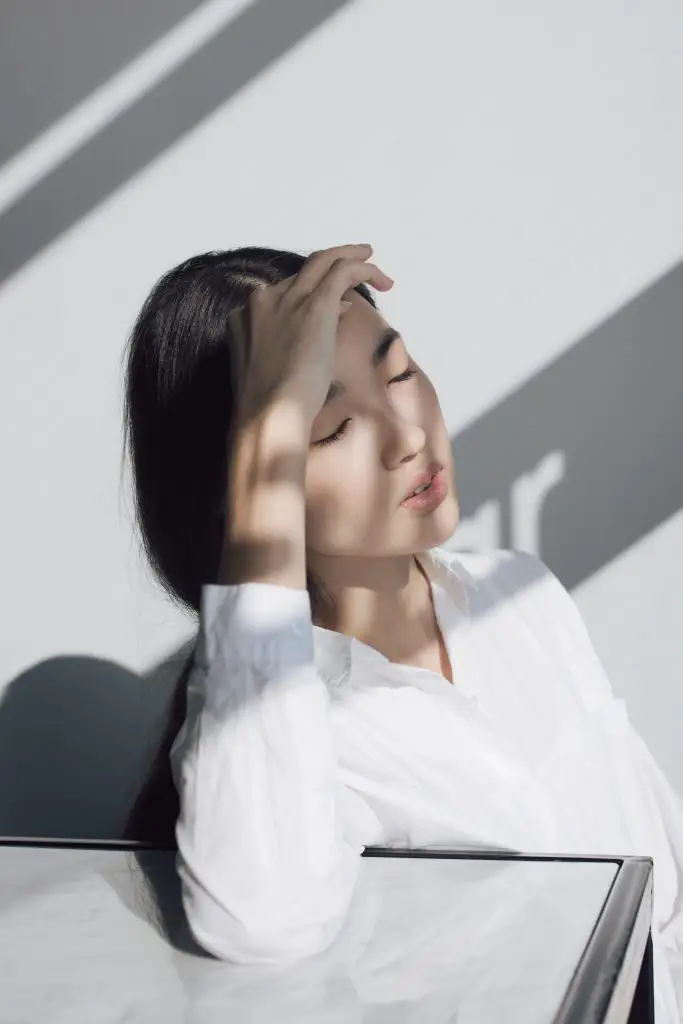How To Stop Hair Loss From Birth Control
27th Jan 2023
Sometimes it is hard to know what causes hair loss. However, if your hair loss starts within a few weeks of starting birth control or switching to a new type of birth control, there is a high chance that your hair loss is being caused by your birth control.
Knowing how to stop hair loss from birth control is vital, especially if birth control is something you plan to keep taking. First, you need to know about the different types of birth control and how hormones affect your hair.

This helps explain what you can do about it and that there are types of birth control that are less likely to cause hair loss. When you start taking birth control, you should always watch for hair loss so you can start these things immediately if you notice any extra hair fall.
Different Types Of Birth Control
The many types of birth control options will each affect you differently. Some of this is due to how different types of birth controls work. These come in pills, injections, implants, patches, and a few other forms.
Some people can take birth control without noticing any difference in their hair growth, while others start noticing hair loss within weeks of using it. Here are some types of birth control that are known to sometimes cause hair loss:
Hormonal Injections – Hormonal injections are applied either in the upper arm or buttocks. Most of these work by preventing ovulation, thereby making sure there is no egg present that could be fertilized.
Oral Contraceptives – There are many options for contraceptives you can take orally. Most of these work by dosing your body with excess amounts of estrogen or progestin or both estrogen and progestin.
Progestin Implants – These go into the upper arm and release a continuous dose of progesterone.
Skin Patch – This can be placed in a variety of areas. It continuously releases both progesterone and estrogen.
Vaginal Ring – This ring is placed directly into the vagina, where it slowly releases progesterone and estrogen.
There are many other birth control options. These are simply the more commonly used options that you should be aware of.
Why Birth Control Affects Hair Growth
Most birth control options, no matter what form, work by affecting your hormones in some way. Your hormones play a role in controlling your hair growth cycle as well as your menstrual cycle. Therefore, it is not surprising when birth control affects your hair growth.
Some important hormones for your menstrual cycle are:
- Gonadotropin-releasing hormone (GnRH)
- Follicle-stimulating hormone (FSH)
- Luteinizing hormone (LH)
- Estrogen
- Progesterone
GnRH is in your brain and is what triggers your pituitary gland. Your pituitary gland, in turn, then makes FSH and LH. FSH tells your eggs to ‘get ready’ and makes your body release estrogen from your ovaries.

Meanwhile, LH then has your ovaries release the eggs and assists your ovaries in making progesterone. It is the progesterone that keeps your reproductive cycle regular and helps with pregnancy.
It is primarily the hormones estrogen and progesterone that keep your hair in its growth cycle. These two hormones also help your hair stay firmly attached at the roots. This prevents your hair strands from being pulled out with a light tug.
In order to prevent pregnancy, birth control messes with these hormones at some stage of the cycle. To prevent ovulation, one or both of the hormones made in your pituitary gland can be blocked in some way. This often results in less estrogen and progesterone, as your ovaries don’t get triggered to make these.
Other birth control types work by giving your body high doses of estrogen or progesterone, sometimes both. The goal is to trick the ovaries into thinking they are still on the same cycle and it isn’t time to release an egg.
However, the constant presence of these hormones negatively affects your hair growth cycle, which gets mixed signals both telling it to grow and telling it to enter the dormant stage.
What You Can Do About It
If you notice hair loss from birth control, one of the first things you should do is stop taking it. If that isn’t possible, you should set up a doctor’s appointment to find a different birth control method. Switching to a different birth control method may be all you need to help with hair loss.
In some ways, hair loss from birth control is similar to hair loss caused by menopause. After all, menopause causes hair loss as your estrogen and progesterone levels naturally decrease when you get older, and your cycles stop.
Therefore, some treatments for menopausal hair loss also help with hair loss from birth control. This includes eating healthy and taking a supplement for hair growth. This will help your hair recover after you stop taking birth control and can assist your hair even while still on it.
However, if you are continuing to use birth control, make sure whatever supplement you take doesn’t have an ingredient that affects your hormones. This can cause your birth control to become ineffective. Also, go easy on your hair. Avoid pulling on it a lot or using chemicals and other products that damage it.
Other treatments that can help are the use of hair masks and oils, red light therapy, and minoxidil. Minoxidil may be the best option out of these for increasing blood flow to the scalp. However, it also has side effects, and you may have a health condition that makes using it not recommended.
Sometimes, all you need to do to get hair regrowth is wait for your hormones to balance out again after quitting birth control. Unfortunately, some people who lose their hair struggle for a long time to get it back.
Other Types Of Birth Control
There are birth control options that are less likely to cause hair loss. These are not as popular for one reason or another, and you may need more than one to successfully prevent pregnancy.
For example, there are male and female condoms. These aren’t 100% effective and can be inconvenient to use. However, it can be used with an Intrauterine Contraceptive Device (The Copper IUD), which uses copper to change the pH of the uterus to kill sperm.
Other types like these that don’t affect hormones are cervical caps, contraceptive sponges, the Lea Contraceptive, and other spermicide options.
Unfortunately, not everyone can avoid taking birth control that affects hormones. Sometimes doctors can prescribe birth control for things like treating some symptoms of athletic amenorrhea. In these cases, ask your doctor for birth control treatments with a low androgen index.
These are less likely to cause hair loss. They also are less likely to work, potentially resulting in you getting pregnant, which is why they aren’t used as often. However, they may be a good option if you are only taking birth control to help with a medical condition you have.
Final Thoughts
If you have been taking birth control for years without any hair loss, then it may be something else causing your hair fall. However, in some cases, birth control simply takes a while for the disruption of your hormones to catch up with you.

